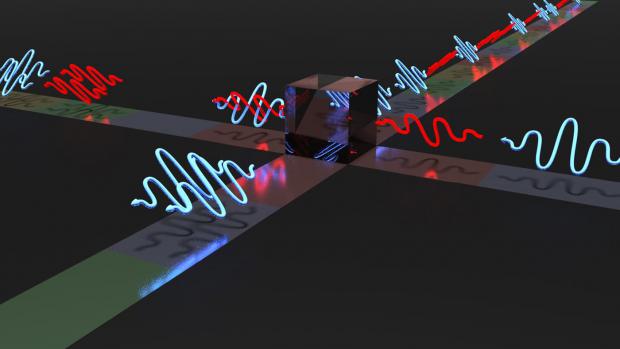
Breaking News
 What's the Best Form of Magnesium?
What's the Best Form of Magnesium?
 Google AI Lead Shane Legg Defines Levels of AGI and Superintelligence and How to Test for It...
Google AI Lead Shane Legg Defines Levels of AGI and Superintelligence and How to Test for It...
 For longer-lasting, eco-friendlier asphalt ... just add algae
For longer-lasting, eco-friendlier asphalt ... just add algae
 Leaf-scan tells farmers when fruit is ripe – without destroying it
Leaf-scan tells farmers when fruit is ripe – without destroying it
Top Tech News
 Perfect Aircrete, Kitchen Ingredients.
Perfect Aircrete, Kitchen Ingredients.
 Futuristic pixel-raising display lets you feel what's onscreen
Futuristic pixel-raising display lets you feel what's onscreen
 Cutting-Edge Facility Generates Pure Water and Hydrogen Fuel from Seawater for Mere Pennies
Cutting-Edge Facility Generates Pure Water and Hydrogen Fuel from Seawater for Mere Pennies
 This tiny dev board is packed with features for ambitious makers
This tiny dev board is packed with features for ambitious makers
 Scientists Discover Gel to Regrow Tooth Enamel
Scientists Discover Gel to Regrow Tooth Enamel
 Vitamin C and Dandelion Root Killing Cancer Cells -- as Former CDC Director Calls for COVID-19...
Vitamin C and Dandelion Root Killing Cancer Cells -- as Former CDC Director Calls for COVID-19...
 Galactic Brain: US firm plans space-based data centers, power grid to challenge China
Galactic Brain: US firm plans space-based data centers, power grid to challenge China
 A microbial cleanup for glyphosate just earned a patent. Here's why that matters
A microbial cleanup for glyphosate just earned a patent. Here's why that matters
 Japan Breaks Internet Speed Record with 5 Million Times Faster Data Transfer
Japan Breaks Internet Speed Record with 5 Million Times Faster Data Transfer
Quantum cryptography breakthrough may lead to more secure communications

Many of the encryption methods that keep our online data safe rely on a digital key which is very hard for computers to crack – for instance, requiring the identification of two very large prime numbers, which standard computers are very poor at. But if a powerful quantum computer were to be built, it could crack these types of code with ease and jeopardize the safety of our digital communications.
The only encryption method that has been proven to be completely secure if applied correctly – quantum computers or not – is the so-called "one-time pad." Here's how it works: first, a secret digital key is created consisting of a completely random sequence of bits. The key is then securely sent to the receiver, and kept private. Now, the sender can encrypt his message by adding the message's bits to the random bits of the key. Under these conditions, the code is deemed truly uncrackable.
Keeping the key secret can be a challenge, but quantum physics can come to the rescue. That's because the weird and wonderful properties of quantum mechanics make it so that if someone were to try and intercept it, the key itself would change and both the sender and the receiver would immediately notice.

 Advanced Propulsion Resources Part 1 of 2
Advanced Propulsion Resources Part 1 of 2

